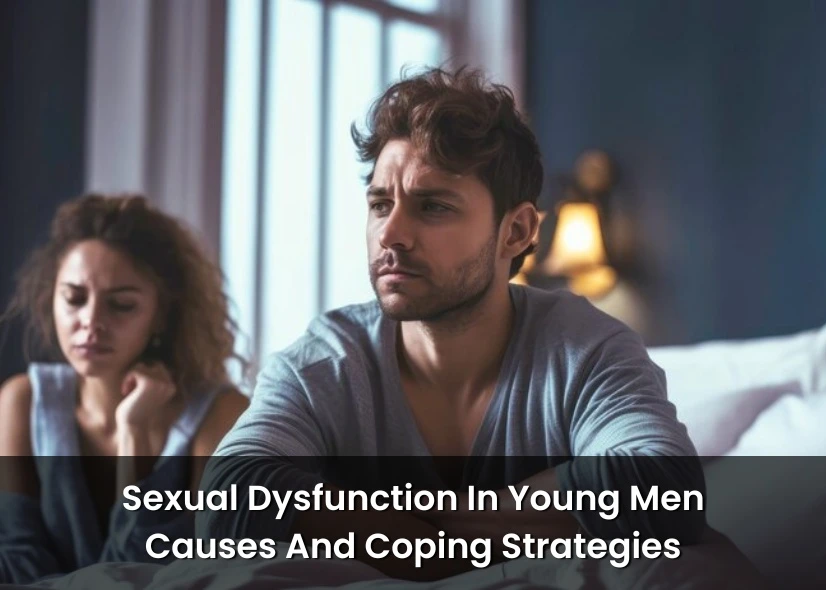Understanding Sexual Dysfunction In Young Men
Sexual dysfunction refers to a difficulty in any phase of the sexual response cycle that prevents the individual or couple from experiencing satisfaction from sexual activity. In young men, this can manifest in several ways:
- Erectile Dysfunction (ED) : Difficulty achieving or maintaining an erection sufficient for sexual intercourse.
- Premature Ejaculation : Ejaculating sooner than desired, often with minimal sexual stimulation.
- Low Libido (Hypoactive Sexual Desire Disorder) : Decreased interest in sexual activity or lack of sexual desire.
- Delayed Ejaculation : Difficulty reaching orgasm, despite adequate sexual stimulation.
These issues can arise due to a combination of physical, psychological, and interpersonal factors, which we’ll explore further.
Causes Of Sexual Dysfunction In Young Men
Physical Factors
- Hormonal Imbalances : Fluctuations in testosterone levels or other hormones can affect sexual function.
- Medical Conditions : Chronic illnesses such as diabetes, cardiovascular disease, or neurological disorders may impact sexual performance.
- Medications : Certain medications used to treat other conditions can have side effects that affect sexual function.
Psychological Factors
- Performance Anxiety : Fear of not performing well or meeting perceived expectations during sexual activity.
- Stress and Depression : High levels of stress or untreated depression can interfere with sexual desire and performance.
- Body Image Issues : Negative body image or low self-esteem related to physical appearance can contribute to sexual dysfunction.
- Past Trauma : History of sexual abuse or trauma can affect sexual function and intimacy.
Lifestyle Factors
- Substance Use : Alcohol, tobacco, and recreational drugs can impair sexual function.
- Lack of Exercise : Sedentary lifestyle and poor physical fitness may contribute to erectile dysfunction.
- Poor Diet: Unhealthy eating habits leading to obesity or nutritional deficiencies can impact sexual health.
- Sleep Deprivation : Inadequate sleep can disrupt hormonal balance and affect sexual function.
Coping Strategies And Solutions
1. Seeking Professional Help
If you’re experiencing persistent sexual dysfunction, it’s essential to consult with a healthcare provider. They can help identify underlying causes and recommend appropriate treatments. This may include hormone therapy, medications, or counseling to address psychological factors.
2. Communication and Education
Open communication with your partner about your concerns can reduce anxiety and improve intimacy. Educate yourself about sexual health to understand common issues and available treatments.
3. Lifestyle Changes
Exercise Regularly: Physical activity improves circulation and boosts overall well-being, which can enhance sexual function.
- Limit Alcohol and Substance Use : Moderation or avoidance of substances known to affect sexual function can be beneficial.
- Prioritize Sleep : Aim for adequate sleep each night to support hormonal balance and overall vitality.
4. Psychological Support
- Therapy : Cognitive-behavioral therapy (CBT) can help manage performance anxiety or address underlying psychological issues contributing to sexual dysfunction.
- Stress Management : Practice relaxation techniques such as deep breathing, meditation, or yoga to reduce stress levels.
5. Medical Treatments
Depending on the specific type of sexual dysfunction, medical treatments such as medications for erectile dysfunction or techniques for premature ejaculation may be prescribed under medical supervision.
If you’re experiencing persistent sexual dysfunction, consider reaching out to Lal clinic, we provide personalized guidance and treatment options tailored to your needs. Taking proactive steps today can lead to a healthier and more satisfying sexual future.

